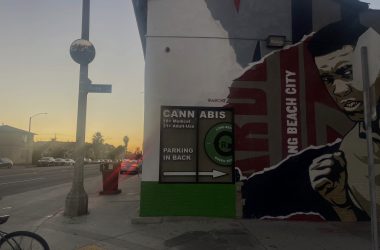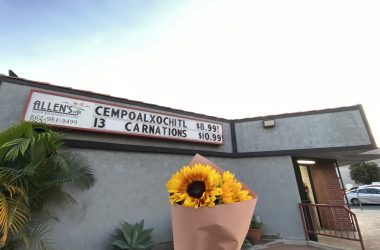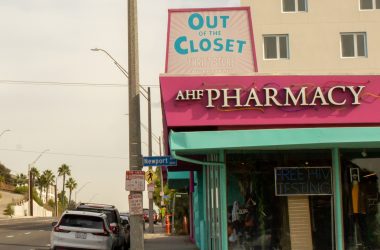2020 was a year that brought challenges for many, especially for the graduating class of 2021. Historical events occurred as CSULB students completed classes and prepared for their future.

March 2020 – Long Beach State suspends in-person classes
With the spread of the novel Coronavirus, CSULB announced Wednesday, March 11, 2020, that in-person classes were suspended. Class sessions were canceled and resumed on a virtual platform on March 18.
Paris Barraza, a graduate of CSULB’s class of 2021 said that she regretted not being able to have the full experience of attending university on campus.
“I had to embrace the fact that my college experience would be, simply put, untraditional,” Barraza, who graduated with a bachelor’s in journalism, said. “It was a bitter pill to swallow.”
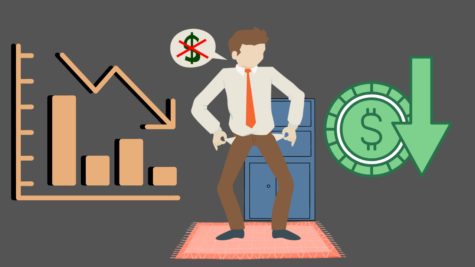
April through May 2020 – Increase in unemployment
In three months, California’s unemployment rate went up nearly 12%, according to the U.S. Bureau of Labor Statistics. Data showed that over 2.3 million Californians lost their jobs between the months of March and April alone.
Ondrea Ortega, a CSULB 2021 graduate with a bachelor’s in public relations, worked in retail and said many of her fellow employees were laid off at the beginning of the pandemic.
“Although I had the luxury of living with my parents, I worried about paying my bills,” Ortega said.
Ortega added that she was grateful she was one of the few who was able to keep their employment.
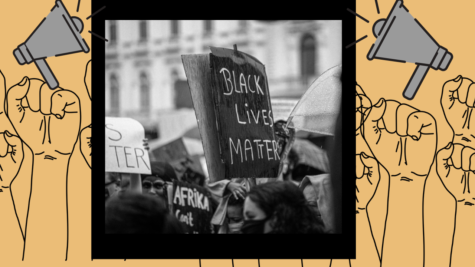
June through July 2020 – Black Lives Matter Movement
George Floyd, a 46-year-old Black man, was arrested by Minneapolis officers on May 25, 2020. Officer Derek Chauvin killed Floyd after pinning him on the ground for nine minutes, unable to breathe, with two other officers looking on.
The death of Floyd upset the nation, where countless people poured into the streets, protesting police brutality.
CSULB President Jane Close Conoley gave a OneBeach message in support of the Black Lives Matter movement, saying that Long Beach State did not condone police brutality. Conoley said the university supported community policing and was grateful for the relationships built between campus police and students, faculty, and staff.
“We cannot, however, support the kinds of abuses of power that have historically targeted Black communities at-large,” Conoley said.
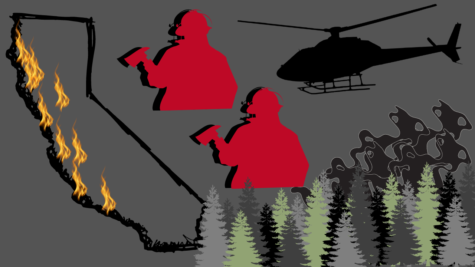
August through October 2020 – California Fires
An estimated 2.5 million California acres burned in 2020, according to the Department of Forestry and Fire Protection. The department said that year was “the largest wildfire season recorded in California’s modern history.”
The August Complex fire, ignited by a thunderstorm on Aug. 16 and 17, burned across seven counties and covered an area slightly larger than Rhode Island, according to the Cal Fire incident archive.
In early September, California record-breaking heatwaves. The dry heat combined with the Diablo and Santa Ana winds further agitated the fires, which grew twice as large as the Mendocino Complex, according to Cal Fire.
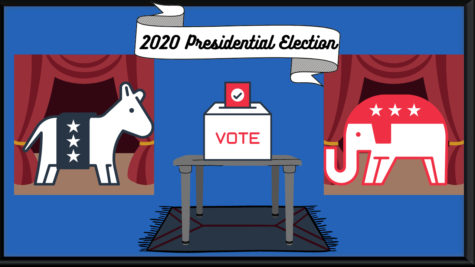
November 2020 – The Presidential Election
Former vice president Joe Biden defeated Donald Trump in the 2020 presidential election. Trump was the first president to lose his re-election campaign since George H.W. Bush in 1992, according to Ballotpedia.
Biden and Trump had opposite stands on key policy issues, such as handling the pandemic, criminal justice reform, immigration, and climate change.
Ortega said she worried over the results of the election because her basic human rights were at stake.
“Before Trump came into office, I was never too engaged in politics,” Ortega said. “As a young gay Hispanic female, I had to pay more attention than ever.”

December 2020 – Spike in COVID-19 cases
On Dec. 3, Gov. Gavin Newsom issued a conditional stay-at-home order in response to the rapid rise of hospitalizations from Nov. 15 through Dec. 2. Any region below 15% ICU capacity would trigger the order.
By Dec. 14, over 4,000 people were hospitalized with COVID in the Los Angeles County, according to the County of Los Angeles Public Health. From Dec. 14 through Dec. 20, hospitalization numbers increased by over 1,300 new cases in those six days alone.
By Dec. 24, California became the first state to surpass over two million COVID-19 cases, with over 23,000 deaths, according to Cal Matters. On Christmas, ICUs were at 0% capacity statewide.
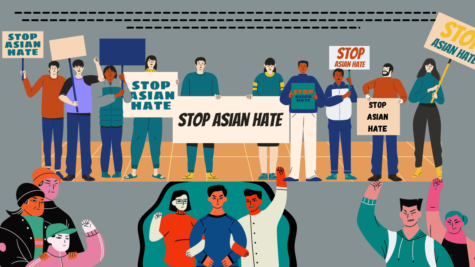
Spring 2021 – Anti Asian-hate protests
In the months of April through June 2021, nearly 2,500 anti-Asian hate incidents were reported to the Stop AAPI Hate coalition. This nonprofit group was formed in response to the increase of hate and bigotry against the Asian American community during the COVID pandemic.
Rajvinder “RJ” Singh, a CSULB graduate with a major in journalism and minor in film, said anti-Asian harassment was something he had never been able to escape.
“For lack of a better word, I’d say I was already a bit numb to it,” he said.
Growing up South Asian, Singh said he has been affected by events such as 9/11 and Osama bin Laden.
“I feel like there are very few specific people who need to carry the weight of the world on their shoulders, and I was one of them during that semester,” Singh said.
Spring 2021 – Post-graduation
Singh had chosen to continue his education and is applying to USC for his master’s in specialized arts journalism. He said he felt there was so much left to learn.
“It felt like COVID had stolen my education in some kind of way,” he said.
Ortega has also chosen to pursue her master’s degree in public relations online at Southern New Hampshire University. She did not originally plan to attend grad school because it had taken so long to get her bachelor’s.
“Over the pandemic, I decided that getting my master’s may be beneficial,” she said. “Although I’d get started in the field, my job is 100% paying for my master’s degree.”


